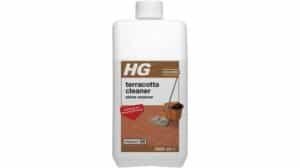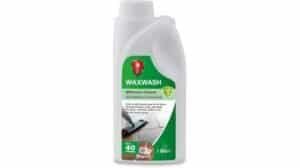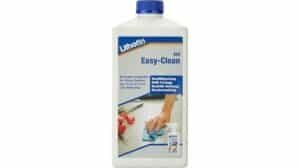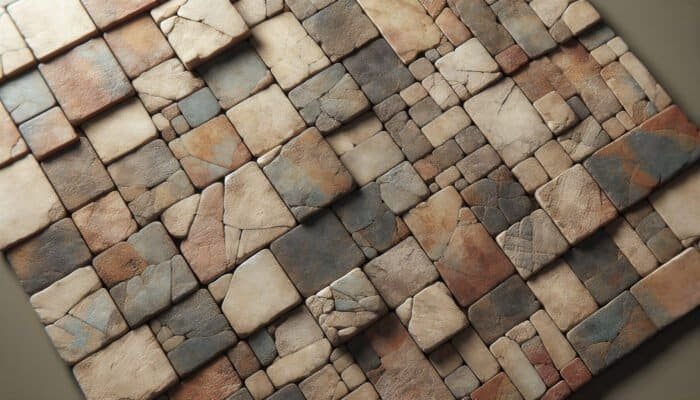
Discover the Top 3 Quarry Tile Cleaners for a Stunning Finish – Comprehensive Reviews and Insights
To achieve a magnificent and radiant finish on your quarry tiles, consider the exceptional HG Terracotta Clean & Shine Restoring Cleaner. This remarkable product excels in removing dirt and rejuvenating shine, with just one litre capable of delivering approximately 20 washes. Another excellent selection is WAXWASH, renowned for its pH-neutral formula and user-friendly application process. Lastly, Lithofin MN Easy-Clean stands out for its effectiveness on natural stone surfaces, effortlessly dissolving grease and grime while leaving behind a delightful fragrance. Each of these products promises impressive cleaning results, and gaining in-depth knowledge can empower you to make the best purchasing decision.
Crucial Considerations for Choosing the Perfect Cleaner for Quarry Tiles
- HG Terracotta Clean & Shine: A powerful concentrated solution designed to restore shine, ideal for terracotta floors, with the potential for about 20 washes per litre.
- WAXWASH (1 Litre): This pH-neutral formula is an outstanding choice for quarry tiles, praised for its ease of use and a high customer satisfaction rating of 4.7 stars out of 5.
- Lithofin MN Easy-Clean: A gentle alkaline cleaner adept at removing dirt and grease from natural stone surfaces, ensuring a streak-free clean and a refreshing scent.
- Tile Compatibility Consideration: Select cleaners based on whether your tiles are treated or untreated to ensure optimal cleaning results without risking damage.
- Safety and Storage Guidelines: Always adhere to safety protocols when handling and storing cleaners to maintain their effectiveness and ensure user safety.
HG Terracotta Clean & Shine Restoring Cleaner for Natural Stone (1 Litre)

If you are in search of a highly effective solution to keep your terracotta floors immaculate and gleaming, then HG Terracotta Clean & Shine Restoring Cleaner proves to be an outstanding choice. This concentrated mopping cleaner is suitable for all varieties of terracotta flooring, whether in your hallway, kitchen, dining room, or bathroom. It efficiently eliminates dirt and stains while revitalising the natural shine of your stone surfaces. One litre is potent enough for roughly 20 washes, making it a cost-effective option. For optimal use, simply combine half a cup of the cleaner with lukewarm water, mop the floors, and allow them to air dry.
Best For: Homeowners aiming to effectively clean and restore the lustre of their terracotta floors throughout various areas of their home.
Advantages:
- Effective Cleaning: Successfully eradicates dirt, grime, and marks from terracotta surfaces.
- Versatile Application: Suitable for both treated and untreated floors, making it ideal for diverse environments.
- Cost-Effective: One litre delivers approximately 20 washes, providing excellent value for your investment.
LTP WAXWASH

WAXWASH (1 Litre) is an exceptional choice for those who wish to maintain the aesthetic allure of their quarry tiles. This product, crafted by LTP, comes in a user-friendly liquid format, making it simple to apply. With its pH-neutral formula, it cleans effectively while safeguarding your tiles from damage. You’ll appreciate the stunning sparkling shine it provides, as WAXWASH has garnered an impressive customer rating of 4.7 out of 5 stars. As a best-selling wax cleaner, you can trust its reliability. Available online, it’s advisable to compare competitive pricing and shipping options. Keep your tiles looking fabulous with WAXWASH!
Best For: Individuals desiring to maintain the beauty and gloss of their quarry tiles without inflicting any damage.
- pH-neutral formula ensures safe cleaning without harming tile surfaces.
- Easy-to-use liquid format enhances application and efficiency.
- A high customer satisfaction rating of 4.7 out of 5 stars reflects its reliability and effectiveness.
Disadvantages:
- A wax buildup may occur on the tile surface if the dilution instructions are not strictly followed.
- No additional components are provided to assist in maintaining the shine.
Lithofin MN Easy-Clean 1 Litre

Lithofin MN Easy-Clean 1 Litre is an excellent option for anyone wishing to preserve the beauty of their natural stone surfaces, including marble and limestone. This ready-to-use, mild alkaline cleaning solution effectively dissolves dirt, oil, and grease, ensuring streak-free results. Infused with premium natural soaps, it maintains the protective qualities of surface impregnation, leaving behind a pleasant scent. It is suitable for regular cleaning of a variety of surfaces, including ceramics and glass. Classified as non-hazardous, it’s important to store it in a cool, sealed environment. Many users appreciate its effectiveness, rating it an average of 4.3 stars.
Advantages:
- Effectively dissolves dirt, oil, and grease, ensuring streak-free cleaning.
- Ingredients contribute to maintaining surface protection.
- A pleasant scent keeps spaces smelling fresh after cleaning.
Exploring the Unique Characteristics and Applications of Quarry Tiles

Quarry tiles are a popular selection for high-traffic areas, such as kitchens and hallways, owing to their exceptional durability and versatility. Crafted from natural clay and subject to high-temperature firing, these tiles are unglazed, providing a robust yet visually appealing aesthetic that complements both traditional and modern environments. Their earthy tones and rustic charm infuse warmth into any setting, whether it’s a quaint home or a bustling café. Thanks to their unglazed surface, quarry tiles offer superior slip resistance, making them ideal for areas prone to spills. However, their porous nature means they can absorb stains if not properly cared for.
Throughout the UK, quarry tiles can be found in various settings, from historic residences to contemporary kitchens. Their ability to endure heavy foot traffic makes them suitable for shops, restaurants, and other busy environments. Nevertheless, the porosity of the tiles means they require additional care to maintain their appearance.
The Necessity of Regular Cleaning for Quarry Tiles
Maintaining the cleanliness of your quarry tiles goes beyond aesthetics; it is crucial for preserving their integrity over time. Accumulated dirt, grease, and grime can gradually dull the natural colour of the tiles, leaving them appearing worn and tired. A well-maintained floor not only enhances a room’s ambiance but also aids in reducing allergens and bacteria, contributing to a healthier living or working environment.
Routine cleaning also safeguards your investment. Allowing dirt and moisture to linger can lead to stains or even structural damage, issues that could be expensive to rectify in the future. Therefore, utilising the best quarry tile cleaner is essential. It helps avert potential problems and ensures your floors remain welcoming, whether for guests or customers.
In summary, consistent cleaning is not merely an option; it is a necessity. With the appropriate products and a dependable care routine, your quarry tiles can provide decades of enduring beauty and durability.
Tackling Common Cleaning Challenges: Effective Strategies and Techniques
When dealing with quarry tiles, their porous nature is a significant element to consider. Unlike glazed tiles, they are more susceptible to absorbing spills and trapping dirt, leading to discolouration if not promptly addressed. Stains may penetrate deep into the surface, and removing them necessitates specialised cleaning solutions and proper strategies.
Different areas will present unique messes. For example, kitchens may contend with oil splashes and food spills, while hallways often accumulate mud and grass stains. Each type of stain requires a tailored approach to clean effectively without causing harm. Therefore, selecting the best quarry tile cleaner is essential, as it is not a one-size-fits-all solution.
Moreover, employing incorrect cleaning methods poses risks. Harsh chemicals or abrasive scrubbers can scratch the surface, resulting in a worn and damaged appearance. Familiarity with your tile material—and treating it with suitable products—is essential for maintaining quarry tiles in excellent condition.
Key Factors to Consider When Choosing a Quarry Tile Cleaner
When selecting a quarry tile cleaner, it is important to consider several essential factors. Evaluate the compatibility of the cleaner with your tile surface and assess the effectiveness of the cleaning method. Furthermore, seek out eco-friendly ingredients, pleasant scents, and the appropriate concentration that meets your cleaning needs.
Understanding Compatibility with Different Surface Types
Choosing the right quarry tile cleaner depends on understanding its compatibility with your specific tile surface. Various tiles respond differently to different chemicals, making it essential to select a cleaner that suits your tile type. Determine whether your tiles are treated or untreated, as some cleaners work more effectively in one condition than the other. The pH level of the cleaner is also crucial; pH-neutral options are generally safe, whereas alkaline or acidic cleaners might damage sensitive surfaces. If you possess natural stone tiles, opt for cleaners that enhance shine and protect the surface. Additionally, be aware that the effectiveness of cleaning solutions can differ based on the tile finish, whether matte or glossy, necessitating a customised cleaning strategy.
Evaluating the Efficiency of Cleaning Methods
Selecting a quarry tile cleaner requires careful consideration of its effectiveness on various surfaces. Look for cleaners that can dissolve stubborn dirt, oil, and grease. Certain formulations incorporate high-quality natural soaps to ensure streak-free results. Concentrated cleaners are typically more economical, providing more washes per bottle than ready-to-use alternatives. Furthermore, pH-neutral cleaners are safer for all types of tiles, helping to maintain their integrity while effectively removing contaminants. Pay attention to the specific cleaning ingredients in the formula, as they can enhance performance on natural stone, ceramics, and plastics. Lastly, consider user ratings and reviews; higher ratings often indicate superior cleaning effectiveness and overall customer satisfaction.
The Significance of Choosing Eco-Friendly Ingredients
Eco-friendly ingredients are vital when selecting quarry tile cleaners. These products often incorporate biodegradable components, reducing environmental impact compared to traditional cleaners. Many formulations are pH neutral, minimising the risk of harming your tiles and adjacent surfaces. They typically avoid harsh chemicals, such as phosphates and chlorine, which can adversely affect aquatic ecosystems. By opting for eco-friendly products, you also improve your indoor air quality. These cleaners generally emit fewer volatile organic compounds (VOCs), which can lead to respiratory problems. Moreover, eco-friendly choices may support sustainability, as they are made from renewable resources and packaged in recyclable materials. This choice not only protects your home but also benefits the environment.
Considering the Fragrance and Residue of Cleaners
When selecting a quarry tile cleaner, the scent and residue left behind are crucial factors that warrant consideration. A pleasant fragrance enhances the cleaning experience, helping to neutralise any unpleasant odours during use. Look for products that provide a fresh aroma without being overpowering. Equally important is the residue left post-cleaning; a cleaner should effectively eliminate dirt and oil without leaving streaks or films on the tiles. Select pH-neutral options to avoid damaging residues that could harm your tiles or grout over time. Cleaners that evaporate quickly minimise residue buildup, making it easier to achieve a clean, shiny surface without extensive rinsing. Choose wisely to ensure optimal cleaning outcomes.
Understanding Concentration and Dilution Ratios
Concentration and dilution are pivotal factors impacting the performance of a quarry tile cleaner. Concentrated formulas generally require dilution to achieve maximum effectiveness, allowing you to adjust the strength according to your specific cleaning task. Each product will have its own dilution ratios, so adhering to the manufacturer’s guidelines is essential. For example, some cleaners may recommend mixing half a cup into half a bucket of water. Over-diluting can lessen effectiveness, while under-diluting might result in residue or surface damage. A concentrated cleaner can also provide cost savings, yielding approximately 20 washes per litre. Additionally, consider the pH level; pH-neutral cleaners are safer for sensitive surfaces, while alkaline or acidic cleaners can tackle stubborn stains but require careful handling.
Choosing the Right Packaging Size for Your Cleaner
Selecting the correct packaging size for your quarry tile cleaner is essential for effective cleaning. Options typically range from 1 litre to larger sizes, impacting convenience and storage. A 1-litre cleaner is ideal for regular maintenance, providing about 20 washes, suitable for small to medium areas. For those requiring frequent cleaning, larger packaging can be more cost-effective, lowering the price per wash and reducing the need for multiple purchases. Consider your cleaning frequency and the size of the area to strike a balance between cost and usability. Many cleaners come in concentrated forms that necessitate dilution, meaning that the effective volume of cleaning solution may vary based on the dilution ratio.
Adhering to Safety and Storage Guidelines
Safety and storage guidelines are critical factors to consider when choosing a quarry tile cleaner. Always check the safety information provided on the product label for hazard warnings, such as flammability or eye irritation. Store cleaning solutions in a cool, dry place, ensuring they are sealed to maintain their effectiveness. Keep all cleaners out of reach of children and pets to prevent accidental ingestion. Follow the manufacturer’s recommendations regarding storage duration, as many cleaners can remain effective for up to three years. When handling cleaning solutions, always use appropriate personal protective equipment, such as gloves and goggles, to minimise exposure to harmful chemicals. These precautions help ensure your safety and the longevity of your cleaning products.
Essential Insights on Selecting the Optimal Quarry Tile Cleaner
In conclusion, choosing the right quarry tile cleaner plays a vital role in the upkeep of your floors. Think of it as selecting the appropriate tools for a project; the right choice leads to polished outcomes. HG Terracotta Clean & Shine, WAXWASH, and Lithofin MN Easy-Clean each offer unique benefits. By employing these products, you can keep your tiles in immaculate condition, ensuring they shine brilliantly for years to come.
Proven Do-It-Yourself Techniques for Cleaning Quarry Tiles
Utilising Vinegar and Water for Natural Cleaning Solutions
One of the most straightforward yet highly effective DIY methods for cleaning quarry tiles involves mixing vinegar and water. This combination harnesses the natural acidity of vinegar, serving as a powerful cleaning agent that effectively cuts through grease, grime, and light stains. To create this solution, mix equal parts of white vinegar and warm water in a spray bottle, gently shaking it to combine.
When applying this mixture, it’s advisable to spray the solution directly onto the quarry tiles and allow it to sit for a few minutes. This resting time enables the vinegar to penetrate the dirt and loosen any embedded stains. Afterward, utilise a soft cloth or mop to wipe away the solution, revealing the tiles’ original brilliance. Numerous users report excellent results, with many asserting that this simple solution rivals commercial cleaners, making it an economical option for regular maintenance.
However, caution is advised when using vinegar on sealed tiles, as the acidity may gradually degrade the sealant, leading to potential damage. For unsealed quarry tiles, this method is both safe and effective, providing a natural alternative for those seeking an eco-friendly cleaning solution. The combination of affordability and effectiveness makes the vinegar and water mixture a popular choice among DIY enthusiasts across the UK.
Creating a Baking Soda Paste for Stubborn Stains
To tackle tougher stains on quarry tiles, a baking soda paste can serve as an excellent DIY solution. Baking soda is well-known for its mild abrasive properties, making it a practical option for removing stubborn stains without scratching the tile surface. To create a paste, mix six tablespoons of baking soda with a small amount of water until you achieve a thick consistency.
Applying this paste involves spreading it evenly over the stained areas and allowing it to sit for a brief period. This waiting time allows the baking soda to effectively break down the stain. Once the paste has had sufficient time to work, use a soft cloth or sponge for gentle scrubbing. The mild abrasiveness of baking soda, combined with its odour-neutralising properties, offers dual benefits—cleaning and deodorising simultaneously.
Many users find this method particularly effective against tough grease stains, making it an ideal choice for kitchens where spills frequently occur. Furthermore, this approach is entirely natural, ensuring that the cleaning process remains free from harsh chemicals. By incorporating baking soda paste into your cleaning routine, you can enjoy a straightforward yet effective method for maintaining the beauty of your quarry tiles.
Enhancing Cleanliness with Natural Oils and Soaps
Utilising natural oils and soaps presents another fantastic DIY technique for cleaning quarry tiles while conditioning their surface. Many people prefer this method for its ability to enhance the natural appearance of the tiles while effectively removing dirt and grime. Products like castile soap, derived from vegetable oils, provide a gentle yet effective cleaning option that is eco-friendly and mild.
To create a cleaning solution using natural oils, mix a few drops of castile soap with warm water in a spray bottle. This solution can be sprayed directly onto the tiles or applied with a mop. The natural oils within the soap not only lift dirt but also condition the tiles, restoring their luster without resorting to synthetic chemicals.
Regular use of natural oils can help repel dirt and prevent staining, ensuring that your quarry tiles remain in optimal condition. Additionally, this method appeals to environmentally conscious individuals, as it utilises biodegradable ingredients. The gentle yet effective nature of natural oils and soaps makes this approach a favourite among those seeking the best quarry tile cleaner that is kind to both the tiles and the planet.
Professional Cleaning Services for Quarry Tiles
Identifying the Right Times to Engage Professional Cleaners
Determining when to enlist professional cleaning services for your quarry tiles can significantly impact their longevity and appearance. While regular upkeep can often be managed through DIY methods, certain situations call for the expertise of professionals. If your quarry tiles have developed deep-set stains or discolouration that DIY solutions cannot remedy, it may be prudent to consult experts.
Professional cleaners possess the requisite knowledge and equipment to effectively address stubborn stains, ensuring that your tiles are restored to their original beauty. Furthermore, if you are preparing for a special occasion or wish to enhance the visual appeal of your space, professional cleaning can offer a level of thoroughness that is challenging to achieve with home cleaning methods alone.
Another factor to consider is the age and overall condition of the tiles. If your quarry tiles are older and have not been adequately maintained, they may require deep cleaning and sealing to restore their protective layer. This process is best left to professionals who understand the intricacies of quarry tile care, ensuring that you don’t inadvertently cause further damage during the cleaning process.
Criteria for Selecting the Right Cleaning Service
Choosing an exemplary professional cleaning service is vital for achieving optimal results in the maintenance of quarry tiles. It is essential to seek out companies that specialise in tile and stone cleaning, as they will have specific expertise in handling quarry tiles. Customer reviews and testimonials can provide valuable insights into a company’s reputation and effectiveness, so be sure to conduct thorough research before making your decision.
Additionally, consider the cleaning methods employed by the service. Look for companies that utilise eco-friendly products and techniques, aligning with the growing trend toward sustainability. This not only benefits the environment but also ensures that your home remains a safe space for children and pets.
Other factors to evaluate when selecting a service include pricing and availability. While the least expensive option may not always be the best, it is vital to find a service that offers competitive rates without compromising quality. Requesting quotes from multiple providers can help you gauge the market rate and make an informed choice.
Understanding the Cost Factors Associated with Professional Cleaning
When contemplating professional quarry tile cleaning services, it is crucial to comprehend the associated cost implications. Prices can vary significantly based on several factors, including the size of the area to be cleaned, the extent of soiling, and the specific techniques employed by the service. In the UK, homeowners can expect to pay anywhere from £50 to over £200 for professional cleaning, depending on these variables.
It is also worth noting that many cleaning companies offer package deals that can provide enhanced value for regular maintenance. For instance, scheduling bi-annual or annual cleanings might yield discounted rates. Some services may offer comprehensive packages that include cleaning, sealing, and ongoing maintenance, ultimately saving you money in the long run.
Before hiring a service, ensure you request a detailed quote that outlines all included services. This transparency allows you to effectively compare options and select a service that delivers the best overall value. Investing in professional cleaning can significantly extend the life of your quarry tiles, making it a worthwhile expense for homeowners seeking to maintain their flooring.
Essential Maintenance Tips for Quarry Tiles
Implementing an Effective Daily Cleaning Routine
Establishing a regular cleaning routine for your quarry tiles is vital for preserving their appearance and durability. Given that these tiles are commonly installed in high-traffic areas, a consistent cleaning regimen prevents the buildup of dirt and grime, making subsequent cleaning efforts more manageable. Start by sweeping or vacuuming the tiles daily to remove loose debris, which can scratch the surface if left unattended.
For a more thorough clean, consider mopping with a mild detergent specifically designed for use on quarry tiles. It is essential to avoid harsh chemicals that may harm the finish of the tiles. Instead, opt for pH-neutral cleaners that are both gentle and effective. A daily mop helps lift away dirt, preserving the natural shine of the tiles and ensuring they remain visually appealing.
In conjunction with routine cleaning, it is crucial to periodically inspect your tiles for any signs of wear or damage. Early identification of issues allows for timely repairs and helps maintain the integrity of your flooring. By committing to a consistent daily cleaning regimen, you can significantly extend the lifespan of your quarry tiles while ensuring they continue to be a beautiful feature of your home.
Strategies for Preventing Stains and Damage
Preventing stains and damage to your quarry tiles requires a mix of practical strategies and protective measures. One of the most effective ways to safeguard your flooring is by using mats or rugs in high-traffic areas, such as entrances and kitchens. These barriers capture dirt and moisture before they can permeate the porous nature of the tiles.
Moreover, consider applying a sealant to your quarry tiles. A high-quality sealant creates a protective layer that helps repel stains and simplifies cleaning. Sealing is particularly beneficial for new tiles, as it prevents dirt and spills from seeping into the surface and causing damage. Regularly reapplying the sealant, typically every few years, ensures enduring protection and preserves the tiles’ appearance.
Education is key to preventing damage. Informing household members about best practices for maintaining the tiles, such as promptly wiping up spills and avoiding dragging heavy objects across the surface, is essential. By fostering a culture of care around your quarry tiles, you can significantly reduce the risk of stains and damage, ensuring your flooring remains in excellent condition.
Implementing Long-Term Care Strategies
To maintain the longevity and visual appeal of your quarry tiles, implementing long-term care strategies is crucial. One key aspect of long-term care involves sealing your tiles, as previously mentioned. For those who have opted not to seal their tiles, regular deep cleaning can help sustain their appearance and prevent long-term damage. Investing in professional cleaning services every couple of years can assist in restoring the tiles’ original sheen.
Furthermore, consider investing in a high-quality, specially formulated product for tiles. Regular use of the best quarry tile cleaner not only aids in maintaining cleanliness but also contributes to the longevity of the tiles. Choose a cleaner that is pH-neutral and free from abrasive components to protect the surface while delivering effective cleaning.
Lastly, monitor the environmental conditions surrounding your tiles. Excess moisture in the air can lead to mould growth and staining. Utilising dehumidifiers or air conditioning in areas with high humidity can help mitigate this issue. By taking these proactive measures and remaining vigilant, you can enjoy beautiful, durable quarry tiles for many years to come.
Frequently Asked Questions (FAQs)
Is Bleach Safe to Use on Quarry Tiles?
It is advisable to avoid using bleach on quarry tiles, as it can damage the surface and lead to discolouration. Instead, opt for milder, pH-neutral cleaning solutions specifically formulated for quarry tiles to ensure their longevity.
How Often Should I Clean My Quarry Tiles?
To maintain their appearance, quarry tiles should be cleaned on a weekly basis. A deeper clean every few months, using professional services or thorough DIY methods, can address any accumulated dirt or stains.
Are Quarry Tiles Suitable for Use in Bathrooms?
Yes, quarry tiles are suitable for bathrooms due to their durability and moisture resistance. However, ensure they are adequately sealed to prevent water damage and staining from toiletries.
Can Quarry Tiles Be Installed Outdoors?
Quarry tiles are durable enough for outdoor use. However, make sure they are sealed to withstand harsh weather conditions and prevent moisture penetration, which could lead to damage.
What Is the Most Effective Method for Stain Removal on Quarry Tiles?
The most effective way to remove stains from quarry tiles is by utilising a gentle cleaning solution, such as a mixture of vinegar and water or a baking soda paste. For persistent stains, professional cleaning may be necessary.
How Do I Properly Seal Quarry Tiles?
Sealing quarry tiles generally involves thoroughly cleaning the surface, allowing it to dry completely, and then evenly applying a high-quality sealant with a brush or roller. Always follow the manufacturer’s instructions for optimal results.
Is It Safe to Use a Steam Cleaner on Quarry Tiles?
Yes, steam cleaners can be applied to quarry tiles, but ensure the tiles are sealed beforehand. Steam cleaning effectively lifts dirt and sanitises the surface without relying on harsh chemicals.
The Article How to Choose the Best Quarry Tile Cleaner for Lasting Results first found on https://www.abbeyfloorcare.co.uk
The Article Best Quarry Tile Cleaner: Tips for Lasting Results appeared first on https://fabritec.org
The Article Quarry Tile Cleaner: Effective Tips for Long-Lasting Shine Was Found On https://limitsofstrategy.com

